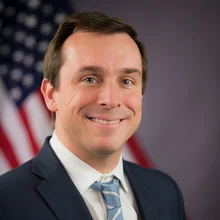SEC Democratic Commissioner Slams CAT Delays
Robert Jackson dissented from a new proposed order to modernize exchange data.

On Wednesday, the Securities and Exchange Commission’s Robert Jackson slammed the lack of progress in building the Consolidated Audit Tape (CAT) as he dissented from a new proposal to modernize the National Market System (NMS).
“Our history governing markets through NMS plans is hardly encouraging. One need look no further than the Consolidated Audit Trail to see what happens when the Commission replaces real regulations with mere hope that stock exchanges will act against their own interests,” said Jackson, who is one of two Democratic commissioners.
The SEC on Wednesday announced that it is seeking comment on a proposed order to modernize the NMS. The CAT is one attempt to modernize equities and options markets, but has been subject to repeated delays for six years.
“Rather than give investors a real say over the data that drives our markets, today’s release merely invites for-profit exchanges to draft their own rules on these questions. …That approach has failed investors before, and there’s no reason to expect it to succeed now,” Jackson said.

The SEC’s announcement says the proposal would direct the equities exchanges and self-regulatory organization Finra to file a new NMS plan with the Commission designed to increase transparency.
Jackson said that by proposing an order under the NMS, the SEC is asking the exchanges to address the conflicts of interest arising from the fact that they profit from the sale of market data.
“No one should be surprised when the exchanges respond that, rather than give investors votes on the operation of the public feed, they’d rather continue controlling it themselves,” he said. “Instead of a clear solution to an obvious problem, today’s proposal will produce little more than a long process that will benefit lobbyists and lawyers—but not the ordinary investors living with the tax of rising data costs in our markets.”
Slow CAT
The CAT, a centralized repository of market data, is intended as an industry response to the Flash Crash of 2010. It is supposed to allow regulators to track activity in US equity and options markets. But the ambitious project has been beset by disruptions, notably the removal from the project of Thesys CAT, the technology company initially contracted to build it. As WatersTechnology reported at the time, the industry laid the blame for these disruptions equally with the vendors, the self-regulatory organizations tasked with running the project, and with the regulators themselves.
The database is intended to capture all trade data, from all market participants. Testing of industry reporting to the CAT began in mid-December, amid concerns from broker-dealers about the CAT reporting agreement. Reporting firms have to sign this agreement in order to gain access to the testing environment, but many are delaying: they believe the agreement protects exchanges from liability and opens up sensitive data.
“Our biggest problem with the agreement is that there are several clauses throughout it that basically shield the SROs from any liability in connection with CAT reporting,” Ellen Greene, managing director of Sifma’s Financial Services Operations group, told WatersTechnology as testing began. “Our firms are contributing not only sensitive customer data, but they’re also sending in institutional data, including their trade data. This is a very high breach target, and we just don’t feel that it’s appropriate for members to sign away liability, given the potential risk that this opens up for them.”
Live production of the CAT in April is mainly for industry members dealing with equities that were previously reporters to Finra’s Order Audit Trail System (OATS). Options, specific to large broker-dealers, go live a month later. Full production is expected to take place by December 2021.
CAT reporters must pass several tests to prove their data has an error rate of 10% or less before they can participate in live production by April 20, 2020.
With additional reporting by Mariella Reason.
Next week, WatersTechnology takes a deep dive into how the CAT is progressing, as broker-dealers brace for what follows the test phase.
Only users who have a paid subscription or are part of a corporate subscription are able to print or copy content.
To access these options, along with all other subscription benefits, please contact info@waterstechnology.com or view our subscription options here: http://subscriptions.waterstechnology.com/subscribe
You are currently unable to print this content. Please contact info@waterstechnology.com to find out more.
You are currently unable to copy this content. Please contact info@waterstechnology.com to find out more.
Copyright Infopro Digital Limited. All rights reserved.
As outlined in our terms and conditions, https://www.infopro-digital.com/terms-and-conditions/subscriptions/ (point 2.4), printing is limited to a single copy.
If you would like to purchase additional rights please email info@waterstechnology.com
Copyright Infopro Digital Limited. All rights reserved.
You may share this content using our article tools. As outlined in our terms and conditions, https://www.infopro-digital.com/terms-and-conditions/subscriptions/ (clause 2.4), an Authorised User may only make one copy of the materials for their own personal use. You must also comply with the restrictions in clause 2.5.
If you would like to purchase additional rights please email info@waterstechnology.com
More on Regulation
Off-channel messaging (and regulators) still a massive headache for banks
Waters Wrap: Anthony wonders why US regulators are waging a war using fines, while European regulators have chosen a less draconian path.
Banks fret over vendor contracts as Dora deadline looms
Thousands of vendor contracts will need repapering to comply with EU’s new digital resilience rules
Chevron’s absence leaves questions for elusive AI regulation in US
The US Supreme Court’s decision to overturn the Chevron deference presents unique considerations for potential AI rules.
Aussie asset managers struggle to meet ‘bank-like’ collateral, margin obligations
New margin and collateral requirements imposed by UMR and its regulator, Apra, are forcing buy-side firms to find tools to help.
The costly sanctions risks hiding in your supply chain
In an age of geopolitical instability and rising fines, financial firms need to dig deep into the securities they invest in and the issuing company’s network of suppliers and associates.
Industry associations say ECB cloud guidelines clash with EU’s Dora
Responses from industry participants on the European Central Bank’s guidelines are expected in the coming weeks.
Regulators recommend Figi over Cusip, Isin for reporting in FDTA proposal
Another contentious battle in the world of identifiers pits the Figi against Cusip and the Isin, with regulators including the Fed, the SEC, and the CFTC so far backing the Figi.
US Supreme Court clips SEC’s wings with recent rulings
The Supreme Court made a host of decisions at the start of July that spell trouble for regulators—including the SEC.







